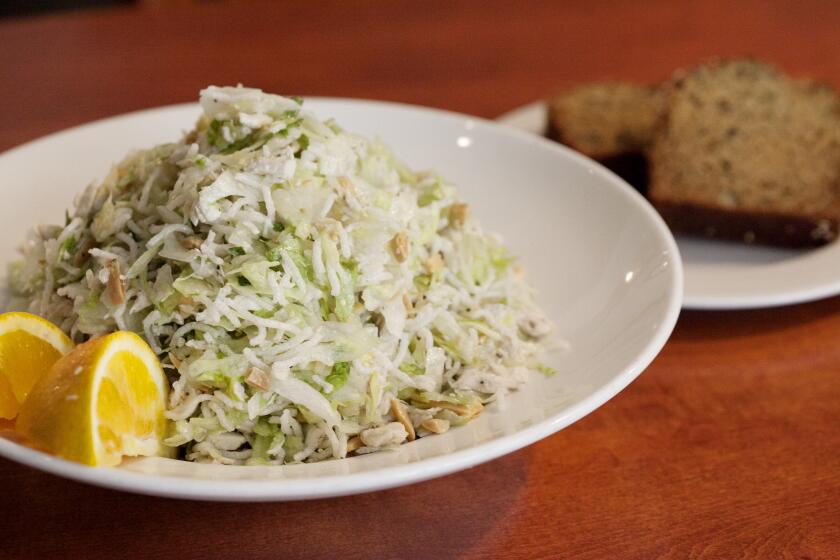From hashtags to hospitality: Are L.A.’s influencer-backed restaurants worth the hype?
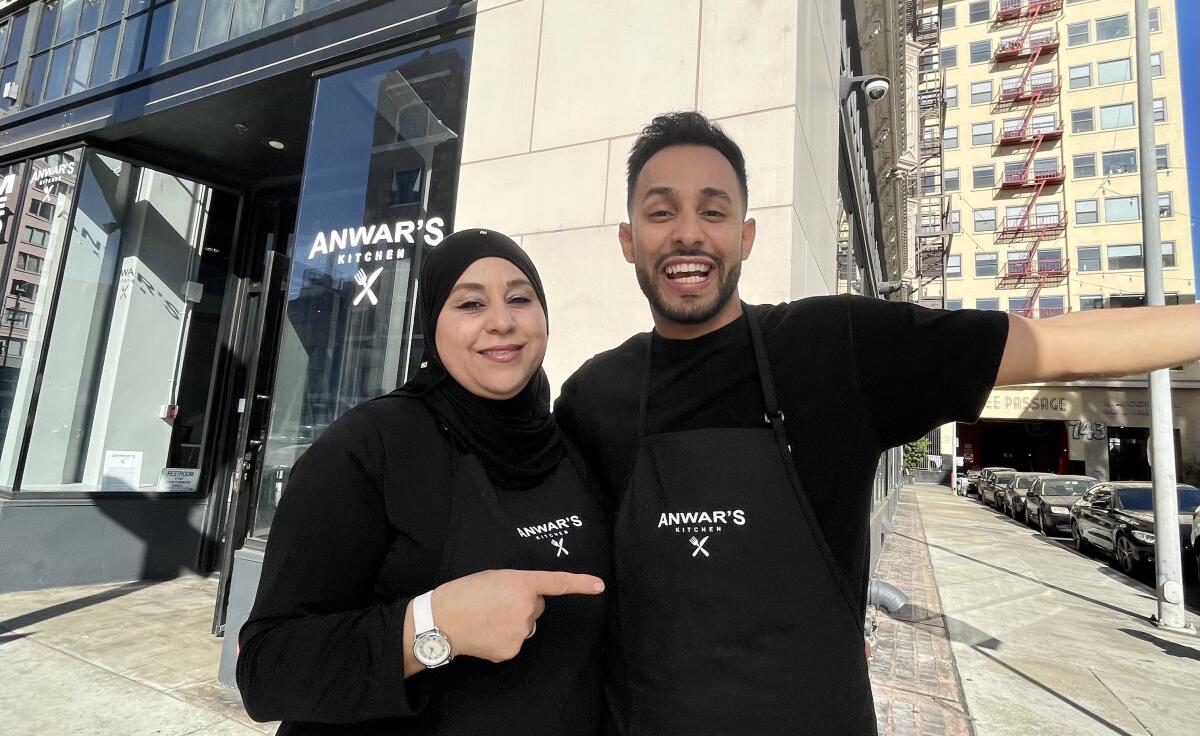
- Share via
Last November, one of L.A.’s most eagerly anticipated pizzerias opened its doors on a prime patch of West Hollywood real estate. Throngs of customers lined up on Sunset Boulevard, snaking around multiple blocks and threatening to disrupt traffic.
They were hungry — not for pizza, but for a sighting of David Dobrik.
More renowned for his comedic skits than culinary chops, Dobrik is an internet personality who rose to fame on platforms like Vine and YouTube. Together with his friend and fellow social media star Ilya Fedorovich, they founded Doughbrik’s Pizza as an homage to the Chicago-style pan pizza they grew up eating. But their foray into the restaurant industry was preceded by controversy, including accusations of sexual misconduct and bullying involving Dobrik’s squad of content creators (Dobrik has denied all accusations). Despite the allegations, Doughbrik’s continues to command crowds nearly a year later — whether the restaurant owes its popularity to the pizza or its founder’s celebrity (he counts over 26 million followers on TikTok alone), the restaurant shows the power that creators wield.
In fashion, beauty, interior design and other industries, creators have parlayed their digital presence into physical spaces. Now they’re entering the culinary domain, riding the wave of celebrity-backed establishments that proliferated in L.A. in the early aughts.
For years, Hollywood A-listers have leveraged their capital and influence to open restaurants — a tradition that stretches back to once-hotspots like Eva Longoria’s Beso and Jennifer Lopez’s Madre’s. Remember Ashton Kutcher’s Ketchup and Dolce Enoteca e Ristorante? In the heyday of these venues, crowds flocked in, drawn by the celebrity connection and the chance to glimpse their favorite stars in the flesh. But when the food and service weren’t up to par, many of these restaurants, including the aforementioned, eventually went under.
These setbacks haven’t deterred the rich and famous from backing restaurants, and a handful have experienced success. Travis Barker invested in L.A. institution Crossroads Kitchen a decade ago, while Ryan Gosling has been the quiet co-owner of Tagine for 15 years. More recently, Cristiano Ronaldo’s Tatel and Evan Ross and Ryan Philippe’s The Hideaway have opened in Beverly Hills.
Reality stars have followed suit, most notably “Real Housewives” icon Lisa Vanderpump and her restaurateur husband Ken Todd. But even frequent appearances on reality TV couldn’t salvage Villa Blanca, which closed in 2020, or Pump, which folded this past summer. SUR and TomTom remain a part of the Vanderpump restaurant empire.
Unlike the broader celebrity appeal that the old guard of star-centric establishments relied on, the latest crop of influencer restaurants is led by creators with a culinary focus. Take ĐiĐi, a high-end Vietnamese concept in West Hollywood from Tuệ Nguyễn, a TikTok cooking sensation with nearly 700,000 followers, and the h.wood Group, known for buzzy nightlife spots like Delilah and Harriet’s Rooftop. Following an initial collaboration with Nguyễn on a pop-up event, co-founders John Terzian and Brian Toll recognized the potential of a long-term partnership.
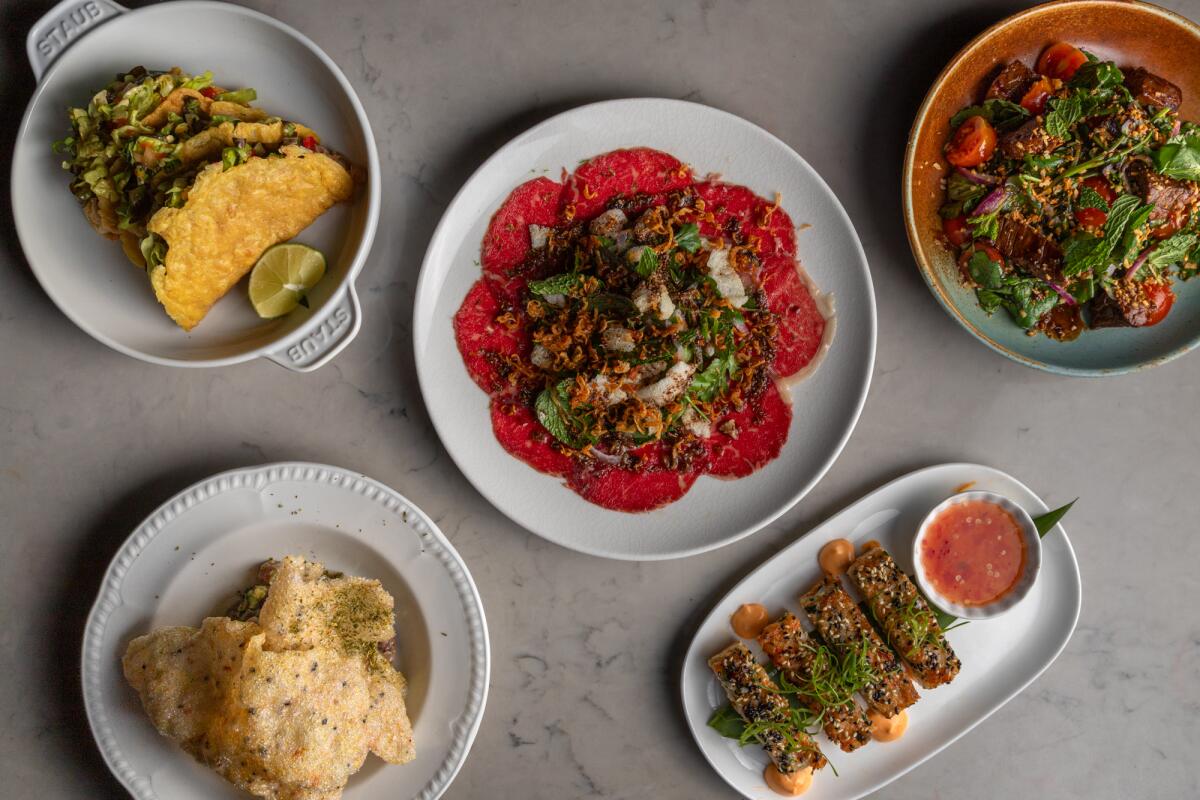
“We did two nights at Petit Taqueria that sold out both nights,” explains Toll. “People were begging us for tickets on social media — the demand really blew our minds. After that, we decided to rebrand and come up with a new restaurant concept together with Tuệ.”
Recognizing that ĐiĐi couldn’t rely solely on her fans to fill its tables, Nguyễn worked on delivering a distinctive dining experience that filled a gap for modern Vietnamese cuisine. Along the way, Nguyễn documented some of the menu research and development and posted mouthwatering previews, creating content that channeled her passion and ultimately resonated with diners. Some of ĐiĐi’s most memorable items — like the honey-glazed prawns with Vietnamese fish sauce or bánh-xèo-inspired coconut tacos that nod to L.A.’s taco culture — are nontraditional, but made with Vietnamese ingredients.
“People are coming back again and again not just for the vibe, but for the food,” says Toll.
Influencer-owned restaurants thrive when they appeal to the creators’ niche markets and carve out distinct identities. Conceived by Jing Gao, founder of modern Chinese food brand Fly by Jing, and Stephanie Liu Hjelmeseth, an established fashion and beauty content creator, Suá Superette is a Sichuan grab-and-go marketplace that’s bringing Chinese flavors to central L.A. with an all-day menu of pre-packaged offerings prepared with organic produce, sustainable meats and high-quality ingredients, all rooted in traditional recipes and powered by Fly by Jing’s flavor-charged condiments.
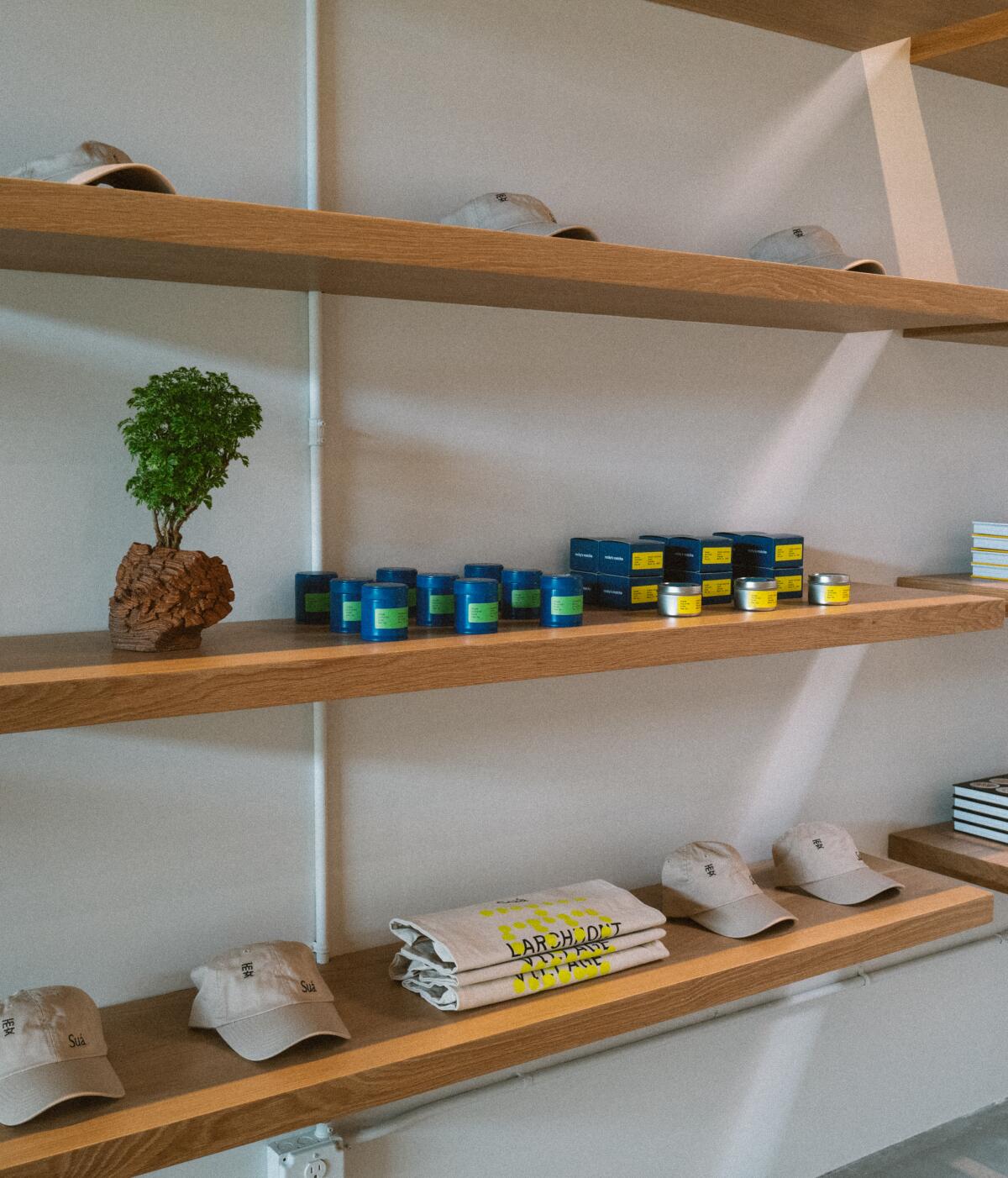
“We wanted to share Sichuan food, but in a way that’s expressive of our modern Chinese California experience, like intentionally making sure our produce is fresh from the farm,” says Hjelmeseth.
Like Nguyễn, cooking content paved the way for social media star Anwar Jibawi and his mom, Amal, to open a brick-and-mortar restaurant in downtown. During the early 2020 lockdown, they launched a popular YouTube cooking series, making Palestinian and Mediterranean staples that you can now find at Anwar’s Kitchen.
“We knew there was a desire for our food when we saw fans replicating my mother’s recipes,” says Jibawi, who boasts 10.1 million subscribers on the platform. “Our restaurant is 100% halal. My mom’s the true master behind the recipes, which have been passed down for generations.”
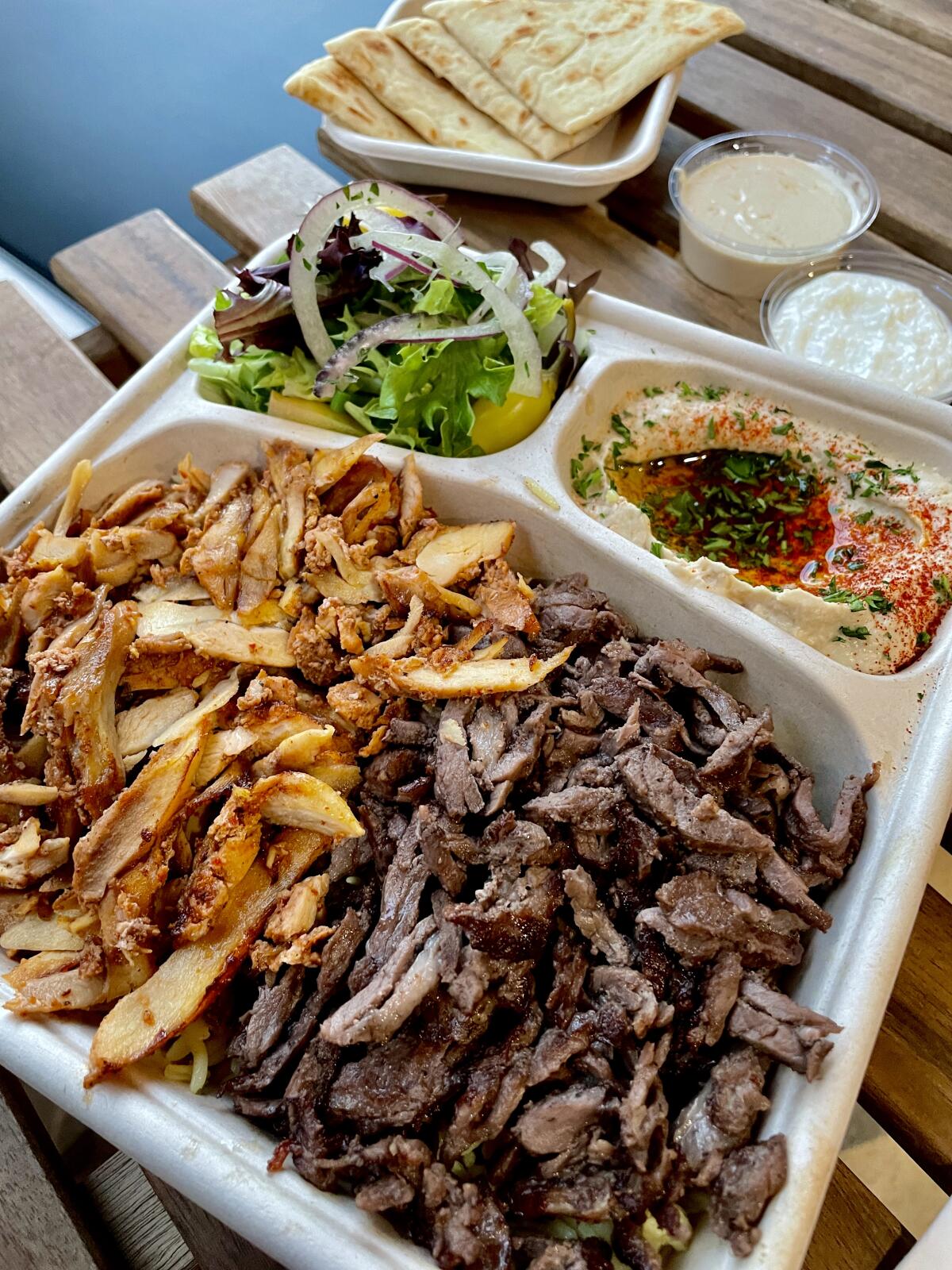
But not all culinary creators have the ability to manage a restaurant and lure crowds.
“With Tuệ, we really saw her genuine excitement about creating something together at ĐiĐi,” says Terzian. “That’s not a passion all creators have to sustain a successful business. We had endless long hours in the space, tastings, and now she’s in there every night running the kitchen and engaging with customers.”
Real-life restaurant experience — not just behind the camera — also helps. Nguyễn attended culinary school and worked at Spago before kick-starting her content creator career. Meanwhile, Hjelmeseth has culinary connections that might surprise the 115,000 Instagram followers who obsess over her impossibly stylish feed.
“My family has been in the restaurant business all my life,” she says. “It’s a business that I’m very familiar with behind the scenes.”
When her parents retired and closed their last business — which she says was Orange County’s first Sichuan restaurant — Hjelmeseth felt a calling to continue their legacy. She reconnected with Gao at an event, where the latter (a chef in her own right) mentioned her dream of opening a Pret A Manger-inspired grab-and-go cafe, and Suá was born.
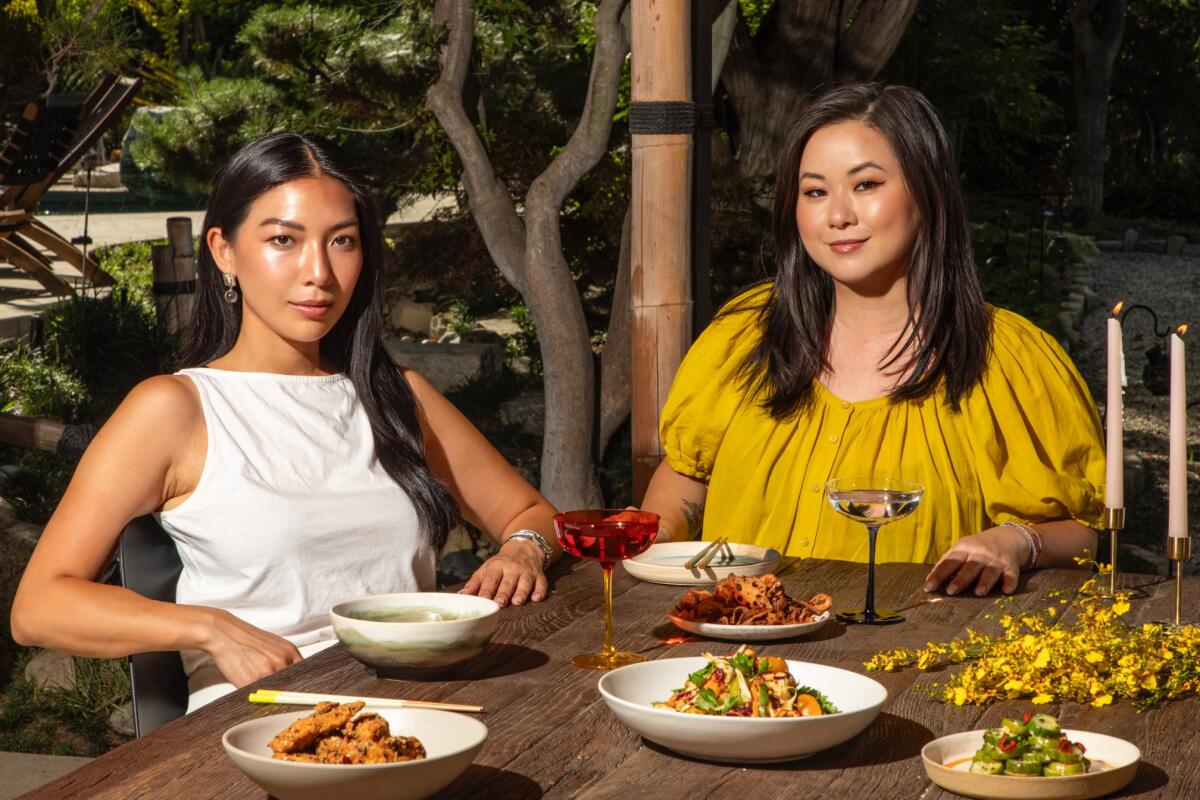
But if an influencer’s star power is the main attraction, what happens if, or when, their star wanes? Earlier this year, Schwartz & Sandy’s, a cocktail lounge from “Vanderpump Rules” stars Tom Schwartz and Tom Sandoval, dealt with the fallout of Scandoval — including a deluge of negative reviews left by fans angry about Sandoval’s affair with a fellow costar. Although the bar experienced a surge in interest following the scandal, it’s now struggling to fill tables.
Hjelmeseth believes having the right focus is the key to longevity.“We created Suá to fill a gap in the market,” she says. “We’re intentionally not naming it Steph and Jing’s Cafe. We want Suá to live and breathe on its own, and we feel there is absolute potential in that because it’s so unique.”
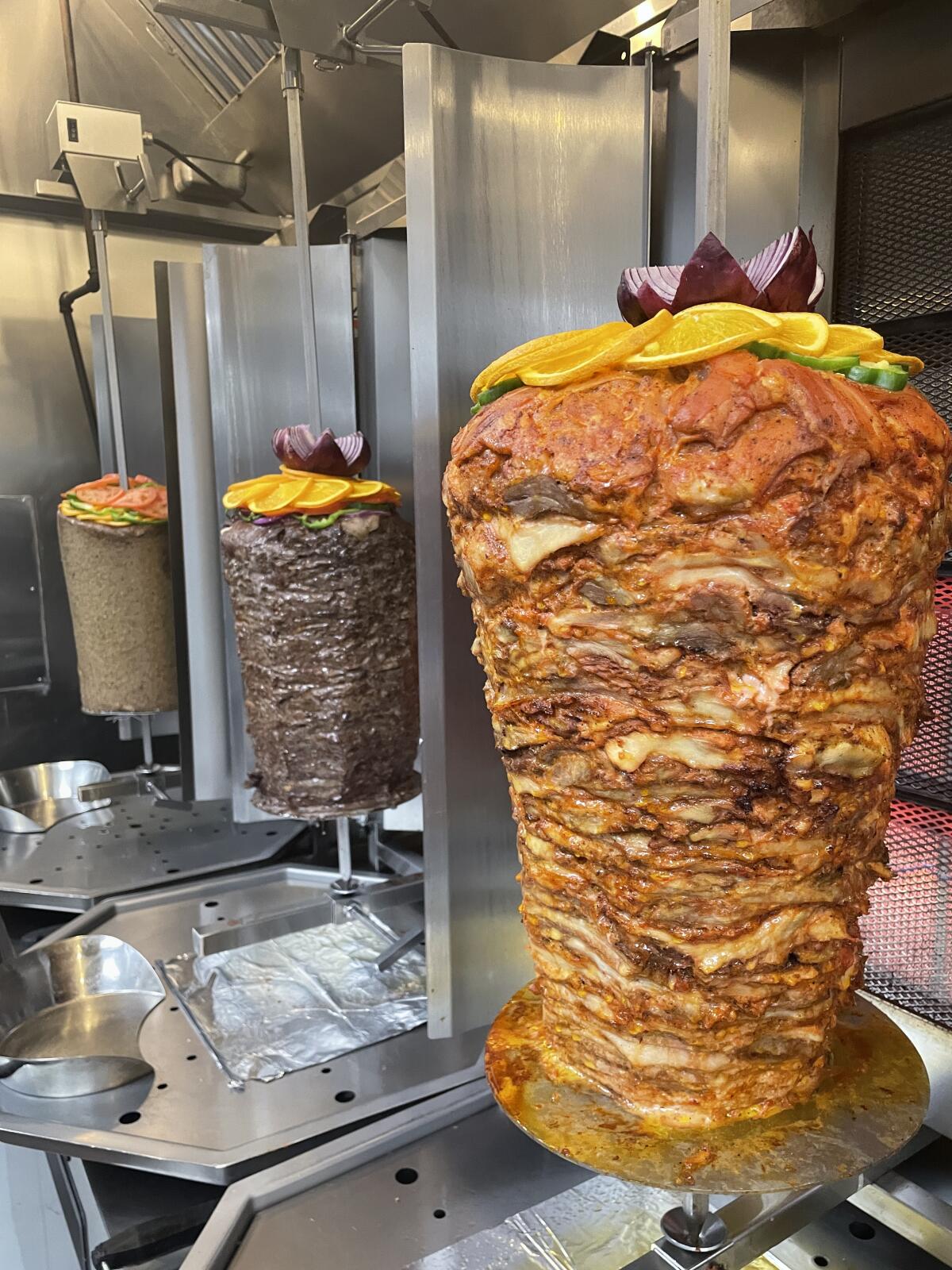
Longevity is rare in the restaurant industry, but influencers who take an active role might have a better shot than those who merely attach their name to a venture, only to find they have no control over its execution. Internet personality Jimmy Donaldson, better known as MrBeast, recently sued the partner in his virtual burger restaurant, alleging quality control issues and inedible food. The company filed its own lawsuit against him soon after.
Jibawi’s restaurant bears his own name, but this commitment only intensifies the pressure he feels to do right by his followers. “Being a public figure, guests that come to the kitchen also expect a higher quality,” he says. While some influencer restaurants might be vanity projects or pure money-making ventures, Jibawi says sharing his family’s recipes — and staying true to them — is his ultimate motivation.
More to Read
Eat your way across L.A.
Get our weekly Tasting Notes newsletter for reviews, news and more.
You may occasionally receive promotional content from the Los Angeles Times.









